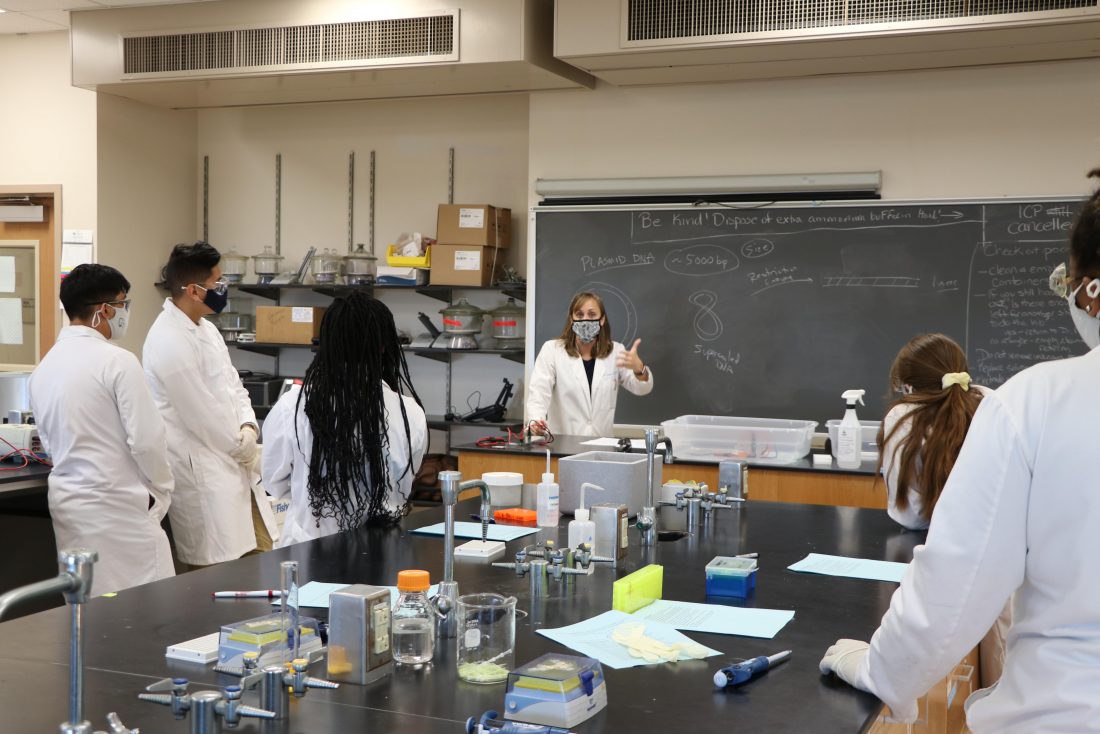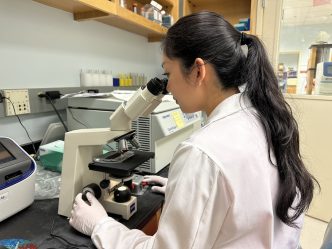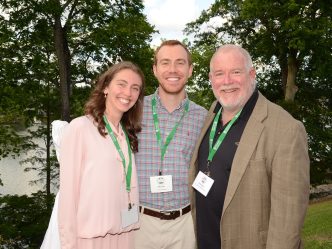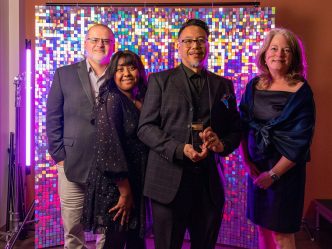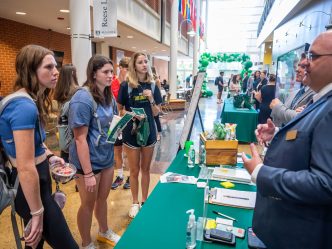In 2019, the National Science Foundation awarded Augusta University $905,444 to increase the number of students completing undergraduate degrees in STEM disciplines.
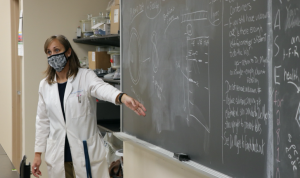

Dr. Angie Spencer, principal investigator and associate professor of chemistry in the College of Science and Mathematics, said the grant would fund scholarships for about 30 students over its five-year duration. The grant will also fund the POPUPS program, which stands for Promoting Opportunities and Pathways for Undergraduate Persistence in STEM.
POPUPS seeks to create a sense of belonging by providing students with a scholarship toward their tuition, hands-on workshops that are also open to all students on campus, mentorships and a learning community.
The program is student-centered, Spencer said.
“Eighty percent of the total NSF grant goes toward scholarships, with the remainder of the funds for faculty support and supplies for POPUPS workshops,” Spencer said.
Students benefit from scholarships
Eligible students who meet the academic criteria and are at a financial disadvantage can be awarded a POPUPS scholarship up to $8,000 per academic year. With the help of the scholarship, many students, like Adam Sams, a rising senior studying ecology, have been able to take a break from working and dedicate themselves to school.
Sams talked passionately about the POPUPS program and the opportunity it provided. “I feel so fortunate to have had this opportunity. I highly recommend other students check out the POPUPS program and get involved!”
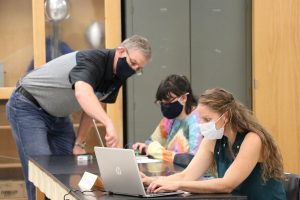

Christina Plantz, a chemistry major with a biochemistry concentration, similarly expressed gratitude for the opportunity to be a POPUPS scholar. “My whole goal is to go into research, and graduate schools want to see that you have worked in a research lab. I would never have been able to get that experience without the scholarship.”
Spencer noted that pandemic restrictions for large gatherings on campus have made recruitment for the program challenging, but she has worked hard to reach out to students and has seen a high level of interest. In two years, the program has received 100 student applications and conducted nearly 50 interviews with candidates.
The first cohort of scholars for academic year 2021 included 16 students majoring in biology, cell and molecular biology, chemistry, ecology, math and physics. Decisions are still being finalized for next year’s cohort. About $120,000 of the $905,444 has already been awarded to the first cohort of students. The second cohort can expect to receive their scholarships starting this fall.
Workshops offer connections
Hands-on workshops are one way the POPUPS program supports students in STEM. During its first year, the program partnered with faculty from the College of Science and Mathematics, the College of Education, Career Services and the Center for Undergraduate Research and Scholarship to host workshops on STEM careers/internships, undergraduate research opportunities, the software Mathematica and Raspberry Pi, augmented reality, field biology, enzyme kinetics, 3D printing and CAD design.
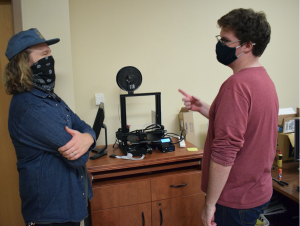

Many scholars in the first cohort actively participated in the workshops that helped them learn new skills without the pressure of a test or grade, including Sams, who had perfect attendance at all the workshops.
“I’ve enjoyed the variety of workshops so far. It’s refreshing to spend time in a learning environment with people who are passionate about sharing what they do,” he said. “I tend to get excited about trying all different kinds of new things, and the POPUPS faculty have created some truly unique experiences for us this year.”
Plantz said workshops offer an encouraging experience to connect with students in different STEM fields who are also working hard and making similar sacrifices to accomplish their goals.
“The workshops have been fun and allowed me to get some hands-on experience with things like Arduino that I would never have otherwise,” Plantz said. “Also, having multiple STEM disciplines represented among the POPUPS scholars allows us to broaden our view of what STEM entails.”
Spencer plans to increase workshop offerings in the future and promote them university-wide. During the pandemic, workshops were limited to POPUPS scholars and their peer mentors.
“Trying to build community in a social setting is difficult with COVID,” Spencer said. “Virtual meetings for either peer mentoring or POPUPS workshops are just not the same as face-to-face meetings.”
Mentoring partnerships for success
Another way the POPUPS program has supported STEM is through mentorships. Scholars in the first cohort were assigned a peer mentor who shared their chosen major or a related one. The committee will also be recruiting student (peer) mentors for the new scholars in the second cohort, starting this fall. The mentors will be trained by the POPUPS committee and the Academic Success Center, with each trained mentor guiding two mentees.
POPUPS scholars said they are thankful for the benefits from the relationships formed in this program. Sams expressed his gratitude that POPUPS connected him with faculty through the whole department, who have become both friends and mentors.
In addition to peer mentors, the POPUPS committee is about to start recruiting faculty mentors for the first cohort of scholars during their second year of the program. During the first cohort’s third year, they will be paired with a professional mentor from the local community to guide them into the STEM workforce.
In sum, the mentorship program helps scholars stay focused and on track and provides practical tips from other students on things like study methods and how to prioritize assignments. The goal of faculty mentors for next year will be to help the scholars narrow down career paths and move their academic plans toward those goals.
In addition to workshops and mentoring programs, POPUPS also orchestrates a learning community for its scholars. The community is designed to support like-minded STEM majors with a common goal to excel academically.
Currently, however, due to the pandemic, the learning community is operating on a reduced scale with the peer mentoring and the popup workshops offered only to POPUPS scholarship recipients this year rather than the broader undergraduate community. Even on this smaller scale, students expressed appreciation for the community that has helped build camaraderie with other like-minded scholars.
Despite disruption from the pandemic, scholars, faculty and staff members of the POPUPS program persisted in providing STEM education and support. Spencer and her committee continually monitor the program’s effectiveness by soliciting feedback from an external evaluator, Dr. Deborah Richardson, associate dean for research and graduate studies in the College of Science and Mathematics. They also conduct surveys and assessments with the help of faculty on campus and graduate student assistants from the master’s program in the Department of Psychological Sciences.
Spencer looks forward to the bright side once everyone adjusts to life post-pandemic. One of her planned initiatives is to offer more workshops on both Health Science and Summerville campuses to accommodate more students beyond those in the POPUPS program.
“We also plan on having a social event at least once per semester with the large group of scholars; for example, kayaking, going to a basketball game, volunteering,” she said.
 Augusta University
Augusta University
